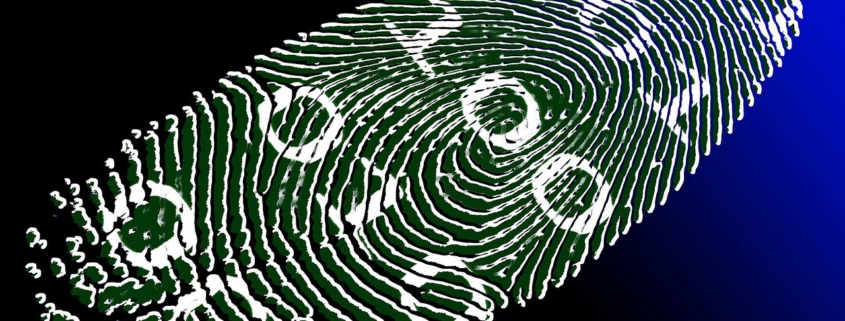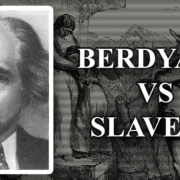Rishi Sunak, Infosys, and Digital IDs
Now that the UK government has formally accepted Rishi Sunak as its Prime Minister, let’s look briefly at what his appointment would mean for the Western world at large. It is important to highlight the obvious, namely that Sunak, in stark contrast to the self-professed creed of the so-called “rules-based order,” was not voted into office. Also worth noting, according to a recent Daily Mail article, is the fact that none of Sunak’s Stanford professors have any recollection of him. This may surprise some who are not familiar with the way technocratic elites operate; after all, technocrats are not exactly popular with the masses. Another aspect worth mentioning is that the modus operandi of the Davos elites has always been to present its agenda under the veneer of multiculturalism and environmentalism.
Many in India’s intelligentsia, due to Sunak’s Indian background, hailed the Prime Minister’s appointment as some sort of victory for Indians on the world stage. Liberals in the West are all too happy to dig at Sunak’s “racist” detractors. Comedian Trevor Noah is one example of a liberal who is just too eager to jump on this bandwagon. In his recent show, he remarked, “Can you imagine white English people trying to rule countries where no one looks like them!” As a side note, Noah should familiarize himself more with colonial history, the result of which will make him aware of the countless native collaborators who were happy to assist the evil “white people” in their devilish agendas, and which would also help Noah draw much stronger parallels between colonialism and Rishi Sunak’s appointment. Meanwhile, this obsession with racial superficiality, as is far too often the case with politics and everything surrounding it, obfuscates the reality behind Rishi Sunak’s appointment as British Prime Minister.
For a start, it’s worth delving into Rishi Sunak’s ties to the World Economic Forum, a corporatist “think tank” filled with millionaires and billionaires who are strangely all too eager to jump into the democratic processes of sovereign nations like the United States and India. According to this article and many other sources, Rishi Sunak is married to the daughter of Narayana Murthy, the founder of Infosys–an official partner of the World Economic Forum. The WEF is, of course, well known these days for publicly promoting what they call “the Great Reset” and what Klaus Schwab calls “the Fourth Industrial Revolution.” We will now observe how mass surveillance is part of this globalist project to “reset” the world’s economy, and how Sunak’s appointment is linked to the implementation of Schwab and Co’s agenda.
Much has been written about China’s social credit score–a mass surveillance apparatus that monitors every citizen and incentivizes their behavior according to the standard of what the Chinese state desires. (For a deeper analysis of this system, see Aaron and Melissa Dykes’ excellent documentary on YouTube.) It is well documented how certain Western elites have often praised China for its top-down control of normal everyday activities. David Rockefeller is one of those elites; in 1973 he praised the communist Chinese government in an article published in the New York Times. Today, in a much similar vein, Infosys president Mohit Joshi calls the world to look to China and borrow their concept of a digital ID system, which is meant to track and monitor all citizens irrespective of their rights to privacy.
With the collaboration of Infosys, the government of India introduced the Aadhaar system in 2009–an undertaking that would eventually become the world’s largest biometric ID system. Nandan Nilekani, the co-founder of Infosys, was selected by the government to head the project. Later in 2016, Mr. Nilekani joined a committee to help the Indian government usher in a “post-cash” future for India. Immediately after the Aadhar’s introduction, debate broke out in India’s parliament, most notably between politician-lawyer P. Chidambaram, who argued from a libertarian perspective, and Infosys founder and Rishi Sunak’s father-in-law, Narayana Murthy.
Despite numerous objections and sufficient evidence of its negative impact on the poor, the Aadhaar biometric system became more and more embedded in India’s bureaucratic sphere and made access to basic facilities nearly impossible without it. In a July article, it is estimated that millions of Indians, including large numbers of homeless, transgender, and indigenous Adivasi (tribal) people, do not have Aadhar and, as a result, are being locked out of government welfare, including access to food, medicine, and education. It is common knowledge in India that without the Aadhaar, opening a bank account is nearly impossible, and many companies will not recruit an Aadhaar-less person. During the pandemic, the status of vaccination was also linked with Aadhaar. From here, it is not difficult to see where this is all headed.
Along with the digital ID initiative, Mohit Joshi also calls for a central bank digital currency implementation. The reasoning used for this invasive measure is the pretext that “paper money can transmit the virus.” Again, Mr. Joshi encourages us to look to China for the benefits of this project. Most recently the Bank of Canada announced the issuance of a digital currency while the US Federal Reserve is openly exploring it. Keep in mind the government’s ability to echo what Paypal did recently with penalties being imposed upon users who spread “misinformation.” The best deterrent to these kinds of practices, of course, would be the existence of physical money in our possession, but people like Joshi are already disgusted, like germaphobes, at such ideas.
While many in the West are debating whether they should expand on the digital ID landscape, it is absolutely essential to consider what has already happened to millions in India, thanks to Rishi Sunak’s family and associates, in spite of the superficial concerns brought on by the neoliberals in places of power. When George Orwell sent Aldous Huxley a copy of Nineteen Eighty-Four, Huxley, scoffing at Orwell’s idea of the few stamping on the many with jackboots à la the Soviet Union, wrote in his review:
The philosophy of the ruling minority in Nineteen Eighty-Four is a sadism which has been carried to its logical conclusion by going beyond sex and denying it. Whether in actual fact the policy of the boot-on-the-face can go on indefinitely seems doubtful… Within the next generation I believe that the world’s rulers will discover that infant conditioning and narco-hypnosis are more efficient, as instruments of government, than clubs and prisons, and that the lust for power can be just as completely satisfied by suggesting people into loving their servitude as by flogging and kicking them into obedience.
We haven’t looked at the “narco-hypnosis” aspect of Huxley’s Brave New World; that is a topic for another time. But it is difficult not to arrive at Huxley’s conclusion in his novel, namely that people, through social conditioning, would invite the tentacles of the surveillance state upon themselves. The West generally believes that Rishi Sunak has been chosen by the people to be Prime Minister in the UK. Some basic investigation reveals that not only is this not the case but Sunak’s appointment, irrespective of the nation’s collective desire, is proof enough of nefarious intentions by nefarious organizations. A deeper look into his ties solidifies this argument. The West must now decide whilst looking at the hidden victims of India’s Aadhaar system whether it wants the same for its own society.










Leave a Reply
Want to join the discussion?Feel free to contribute!